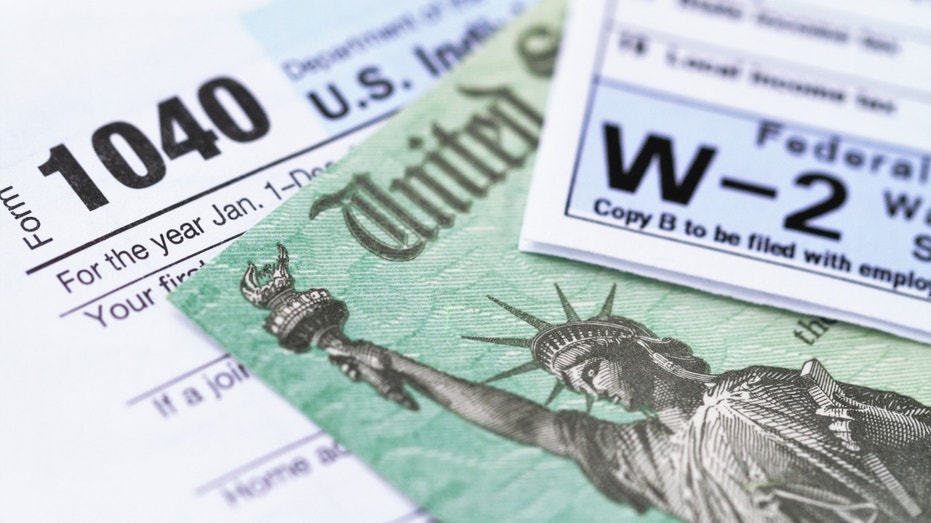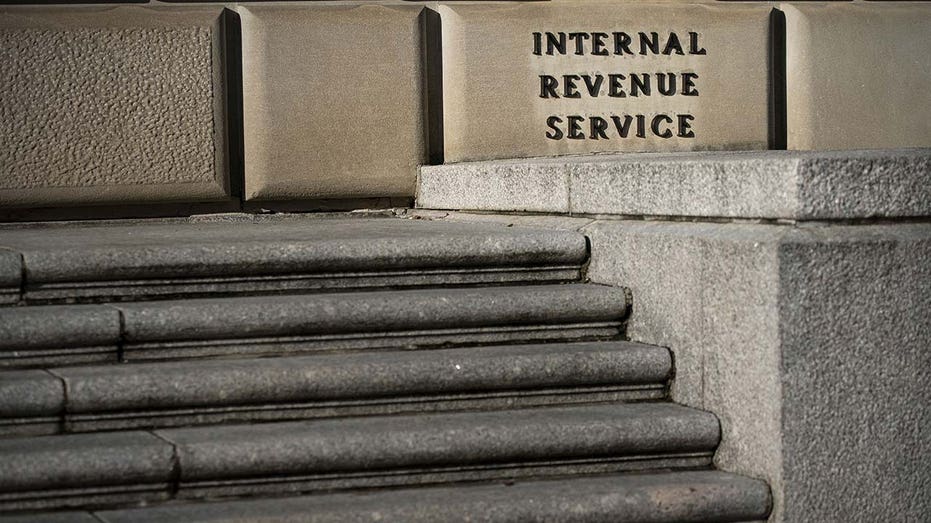Still need to file your taxes? Last-minute tips for late filers
2023 tax-filing deadline is looming, but don't panic: There's still time to file
What you need to know about filing post-COVID taxes in 2023
Jackson Hewitt Tax Service Senior Vice President Mark Steber explains how Biden's proposed tax hikes could impact returns on 'The Claman Countdown.'
The 2023 tax-filing season is officially coming to an end.
Americans must file their taxes or request an extension to file by April 18, or risk paying a penalty.
If you haven’t filed yet, here’s what you need to know:
When is the deadline to file taxes?
Most taxpayers will have until Tuesday, April 18, to submit their returns or request an extension. That's because April 15, the typical deadline, falls on a Saturday, and April 17 is the Emancipation Day holiday in Washington, where the IRS is headquartered.
IRS ISSUES 12 MILLION TAX REFUNDS AFTER CORRECTING FOR 2020 UNEMPLOYMENT BENEFIT BREAK

Forms 1040 and W-2 from the IRS (iStock / iStock)
However, there are some exceptions for those living in areas affected by storms and other natural weather disasters last year. You can check the tax relief status on the IRS website here.
How do I apply for an individual tax extension?
If you’re an individual, you can request an extension online by filling out Form 4868 using the IRS’ "Free File" tool. You need to submit the form or print the form and mail it to the IRS address for your state, making sure it's postmarked by April 18. Once you file the extension, you have until Oct. 16, 2023, to file your taxes.
Is there a penalty if I don't file my taxes by April 18?
There are pros and cons to requesting a tax-filing extension.
It can give filers more time to thoroughly review a return and take advantage of tax benefits, like various deductions and credits available to help reduce liability.
EXPECTING A TAX REFUND? SMART WAYS TO USE THE EXTRA CASH
By pushing back the filing date, you can also avoid a failure-to-file penalty, an extra 5% per month on the unpaid amount, which can add up to 25% of taxes due.
Sixty-one percent of Americans paid no federal income taxes in 2020: report
Fox News contributor Brian Brenberg joins 'Kennedy' to discuss how the pandemic impacted U.S. federal income taxes
Experts caution that filing for an extension does not mean you can delay paying the government the taxes that are owed.
"Extension to file is not an extension to pay," Eric Bronnenkant, head of tax at online financial adviser Betterment, previously told FOX Business. "A common misconception is that you get more time to pay, and that’s not true."
What happens if I can't afford to pay my taxes?
The IRS offers some payment plans to individuals who are unable to pay the full amount of taxes they owe.
If you need to request a payment plan, attach a Form 9465 Installment Agreement Request to your return, asking the IRS to set up a monthly payment plan.
IRS SAYS AVERAGE TAX REFUND IS 11% SMALLER THAN LAST YEAR - HERE'S WHY
The more you pay by April 18, the less interest and penalty charges you’ll owe later.

IRS Form 1040 income tax forms (Associated Press / AP Images)
What happens to my refund if I don't file by April 18?
If you're expecting to receive a refund this year, and you ask for an extension, you won't get that money until you've filed your return. The sooner you file, the sooner you get your refund.
How can I get my tax refund ASAP?
The majority of taxpayers can typically expect to receive a refund from Uncle Sam. For many families, the money can be substantial. Nearly three-quarters of filers received a tax refund in 2022, with an average payment worth about $3,176, up from about $2,800 in 2021.
To receive a refund within 21 days of filing, the IRS has cautioned that you must file your return electronically, ensure that it is accurate and complete and request to receive the refund via direct deposit.

IRS headquarters in Washington, D.C., Feb. 25, 2022 (Al Drago/Bloomberg via Getty Images / Getty Images)
IRS SAYS YOUR TAX REFUND COULD BE SMALLER IN 2023 – HERE'S WHY
However, the tax-collecting agency warned that some returns may require "additional review" and take longer to process if their systems identify any errors, if there are mistakes on the return or if it suspects theft or fraud.
"Filing a paper return would probably be the worst idea of all, even though the IRS has hired additional staff," Tom O'Saben, the director of tax content and government relations at the National Association of Tax Professionals, told FOX Business. "They’re still dealing with a backlog from last year. The difference would be measured in months, instead of weeks, if someone were to do a paper return instead of electronic filing."
Refunds are on average 11% smaller this year. Why?
The IRS said that it has issued about 53 million refunds as of March 17 worth a collective $158.1 billion. The average refund check so far this year is worth $2,933, about 11% lower compared to the $3,305 average recorded last year.

Armando La Rosa directs people to the Liberty Tax Service office as the deadline to file taxes looms April 15, 2016, in Miami, Fla. (Joe Raedle/Getty Images / Getty Images)
GET FOX BUSINESS ON THE GO BY CLICKING HERE
The decrease in refund size can be concerning to millions of Americans who depend on the influx of money from Uncle Sam to make major purchases, save for retirement or pay off debt. On top of that, millions of taxpayers are still struggling with the worst inflation bout in a generation that has sent the cost of staples like food, rent and gasoline soaring higher.
One of the main reasons for the drop in refund size is that there were no extra tax credits or pandemic-related stimulus payments delivered by the federal government in 2022. In 2021, the IRS delivered a third round of stimulus payments worth up to $1,400 per person. Eligible Americans could claim unpaid funds on their tax return.
"It’s reasonable to expect that many people will receive smaller tax refunds this year," said Ted Rossman, senior industry analyst at Bankrate. "That’s mostly because many pandemic-related tax breaks have expired — stimulus payments, the expanded child tax credit and the expanded child and dependent care credit, to name a few."






















